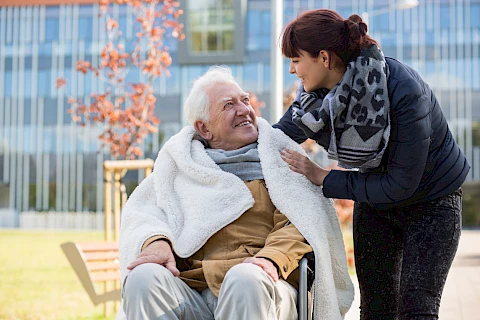
As winter settles in, seniors and their families might be looking for a fresh perspective on care, one that brings warmth and connection during the colder months. Companion care offers an approach that goes beyond mere assistance, aiming instead to provide meaningful social interaction and emotional support.
What Is Companion Care?
Companion care is a specialized form of in-home care centered around providing social interaction and emotional support to seniors. Unlike home care services that focus primarily on medical or personal care needs, companion care emphasizes fostering connection and companionship. This approach can benefit mental health, enhancing a senior's quality of life by maintaining their mental and emotional well-being.
Companion caregivers engage seniors in conversations, activities, or hobbies that interest them, helping them feel more connected and less isolated. This personalized attention differentiates companion care from other care types, focusing on enhancing seniors' day-to-day interactions.
Winter's Impact on Senior Loneliness
Winter months can amplify feelings of isolation and loneliness among seniors. Shorter days and colder weather often restrict outdoor activities and local driving, making it more challenging for seniors to stay socially active. This isolation can lead to seasonal affective disorder (SAD), a condition that causes depression in the winter months. Seniors affected by SAD may struggle with mood swings, fatigue, and a lack of interest in usual activities, which can affect their overall well-being.
Given these risks, it's vital to proactively address loneliness. Ensuring that seniors have ample opportunities for social engagement can counteract the isolating effects of winter.
How Companion Care Alleviates Loneliness
Companion care is effective in combating senior loneliness by providing consistent interaction and engagement. Regular visits from caregivers can make seniors feel valued and heard, reducing feelings of loneliness. Activities such as playing board games, discussing books, or working on crafts can keep seniors mentally stimulated and connected. In many cases, companion caregivers can provide local transportation, empowering seniors to get out of the house and participate in social and cultural activities, as well as day-to-day errands.
Companion caregivers play a critical role in helping seniors establish routines, which can prevent the mental lethargy often brought on by winter. Regular mental and social activities keep seniors' minds sharp and spirits high, ensuring they remain engaged and active during colder months.
The role of companionship is powerful, as it provides seniors with a sense of purpose and belonging. As caregivers spend time with seniors, these activities foster a deeper emotional bond, helping seniors navigate the coldest months with warmth and joy.
Explore Companion Care This Winter With Senior Helpers
Companion care can significantly enhance a senior's well-being by addressing loneliness, especially during winter when the risks of isolation and SAD increase. By emphasizing social interaction and emotional support, this care model offers seniors a lifeline to connection and engagement.
If you or your loved ones are considering companion care, contact us at Senior Helpers McKinney. We serve residents in McKinney, Allen, Frisco, Prosper, and Wylie, and we're here to help you experience a happier, more connected winter. Schedule a consultation to learn more about how our services can cater to your specific needs.